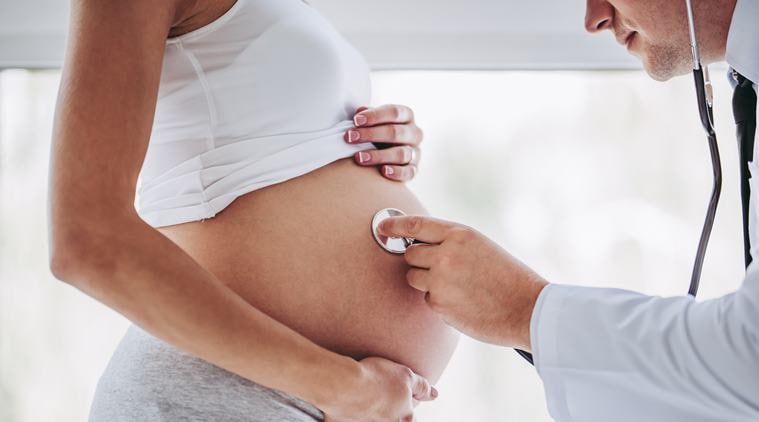IIT Madras to work on predicting pregnancy outcomes and childhood mortality
IIT Madras will collaborate with Translational Health Science and Technology Institute (THSTI) on Applying Advanced Analytical Approaches for predicting pregnancy outcomes and childhood mortality.
 There is a need to research gaps in maternal, neonatal and child health. (Source: Getty Images)
There is a need to research gaps in maternal, neonatal and child health. (Source: Getty Images)
The Indian Institute of Technology Madras is going to collaborate on applying advanced analytical approaches for predicting pregnancy outcomes with Translational Health Science and Technology Institute (THSTI), an autonomous institute of the Department of Biotechnology, Union Ministry of Science and Technology in Faridabad, Haryana.
According to a press release, the collaboration aims to bring together physician-scientists, biologists, engineers and data scientists to solve public health problems related to maternal and child health. The other objectives include:
- Applying advanced analytical approaches for prediction of adverse pregnancy outcomes, childhood morbidity and mortality.
- Evaluating maternal and childhood consequences of exposure to environmental pollutants.
- Studying the role of maternal and childhood nutrition on pregnancy outcomes, immune response to vaccines and childhood morbidity and mortality.
- Undertaking capacity building exercises for students and young researchers of either party in the fields of public health research and data science by enabling student exchange programs and training courses.
The Research Collaboration Agreement that was signed on February 22, 2019, is being spearheaded from IIT Madras by Initiative for Biological Systems Engineering (IBSE), an interdisciplinary group dedicated to innovative approaches and algorithms that integrate multi-dimensional data across scales to understand, predict and manipulate complex biological systems.
Speaking about this collaboration, Dr Himanshu Sinha, Associate Professor, Department of Biotechnology, IIT Madras, who coordinates the IBSE said, “We are very excited about this collaboration between THSTI and IITM as it will give us access to one of the most comprehensive and detailed Indian dataset on pregnancy outcomes being conducted by THSTI. We will analyse this dataset to develop India-specific models which could be deployed nationwide. Our ultimate goal is to create algorithms to help clinicians reduce maternal and child mortality rates in India.”
THSTI will identify public health and clinical needs and research gaps in maternal, neonatal and child health, design observational studies, clinical and community trials to answer the defined research questions and also acquire clinical, epidemiological and biological data with well-defined experimental methods using standardised protocols under quality-controlled settings. Further, it will also participate in analysis and interpretation of clinical, epidemiological and biological data collected in and also work to obtain data or material advantageous for maternal, neonatal, and child health.



- 01
- 02
- 03
- 04
- 05




























